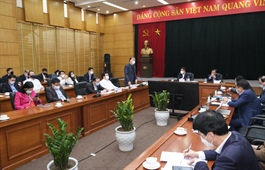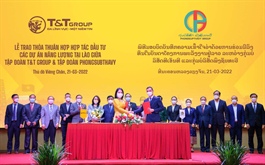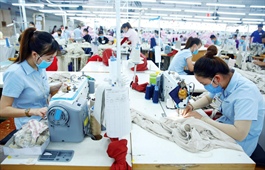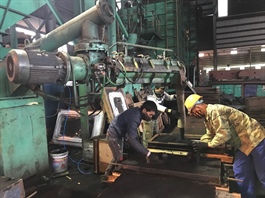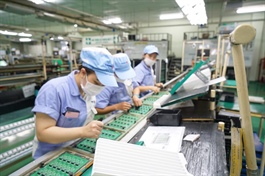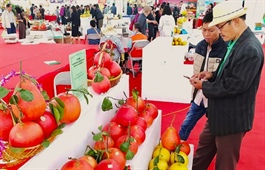Vietnamese firms get tips to boost export to Japan
Vietnamese firms get tips to boost export to Japan
Viet Nam has become a big supplier of agricultural products for the Japanese market and Asia in general, but ample room remains for the country to boost export to Japan, as Vietnamese goods now account for only 3 per cent of Japan’s total import value, heard a workshop on March 29.

The hybrid workshop, jointly held by the Ministry of Industry and Trade (MoIT)’s Vietnam Trade Promotion Agency and the ASEAN-Japan Centre (AJC), aimed to improve Vietnamese enterprises’ capacity for agricultural export to Japan.
Le Hoang Tai, deputy head of the agency, noted that Vietnamese enterprises have applied international standards and cutting-edge technologies in production and processing, thus meeting requirements on food safety and hygiene.
Ta Duc Minh, trade consular at the Vietnamese Embassy in Japan, stressed that Viet Nam has strength in agro-fishery products that are in great demand in Japan.
However, Japan has non-tariff measures to protect domestic production, he said, noting the country’s strict requirements in terms of food hygiene and safety, and animal and plant quarantine, along with high travelling and transportation costs, among others.
He, therefore, suggested Vietnamese exporters make careful preparations in company profile and product catalogues to win potential partners' trust, and promote their products through the embassy’s trade office.
Tran Quoc Toan, deputy head of the Import-Export Department at the MoIT, said Viet Nam is Japan’s 10th biggest supplier of vegetables and fruits, making up about 1.7 per cent of Japan’s import revenue.
Viet Nam and Japan have signed four free trade agreements, which have given competitive advantages to Vietnamese businesses in the market, according to the official.
He called on Japanese competent agencies to further provide information about the market as well as policies and requirements regarding imports for the ministry, the trade office and other relevant agencies of Viet Nam.
Toan suggested the two sides coordinate in organising trade promotion activities, fairs and exchanges between the two countries’ businesses in suitable forms.
Enterprises need to improve production capacity and work to ensure the supply as well as product quality, play a more active role in trade promotion, and stay updated on the local taste, he said.









